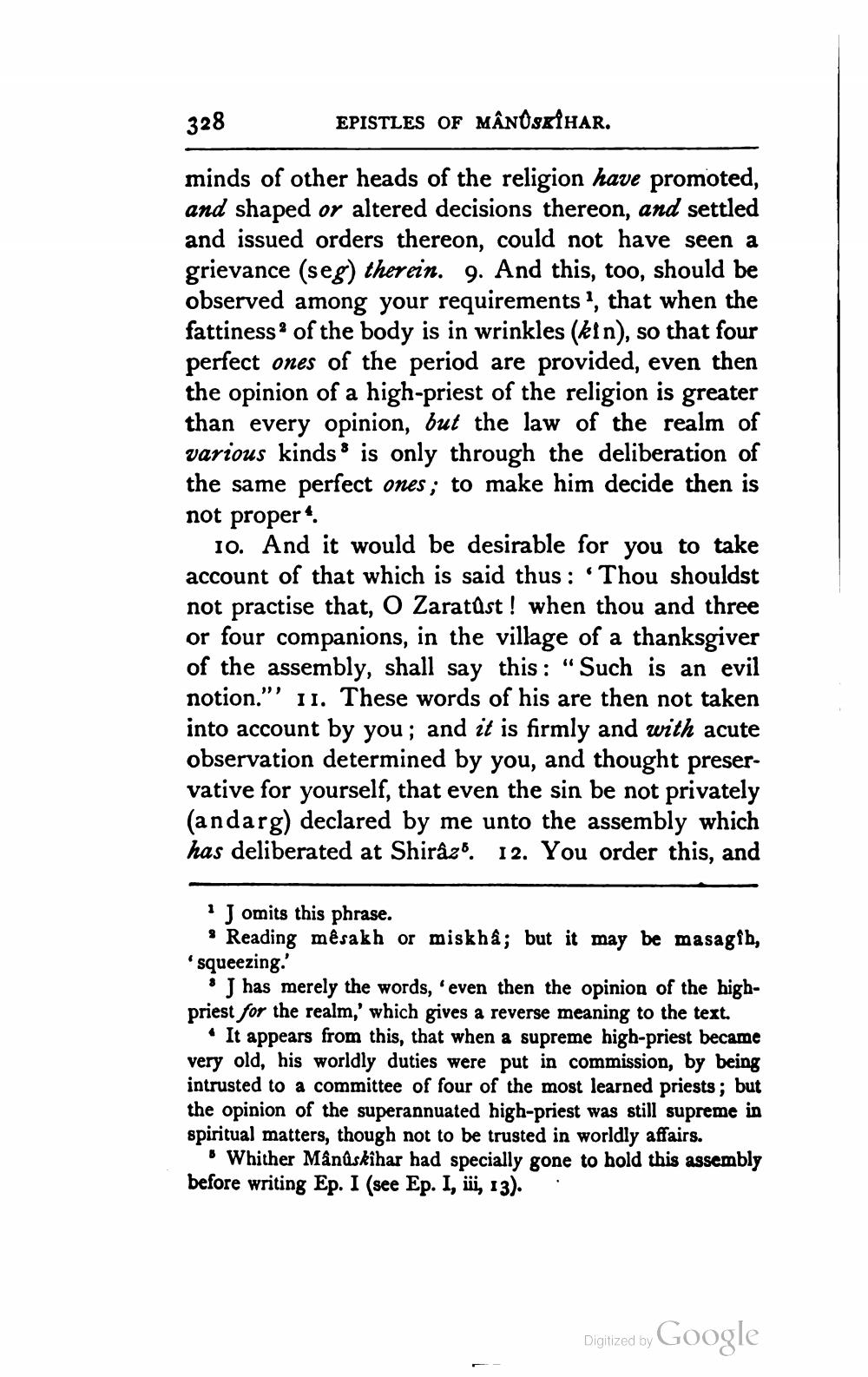________________
328
EPISTLES OF MÂNUSKİHAR.
minds of other heads of the religion have promoted, and shaped or altered decisions thereon, and settled and issued orders thereon, could not have seen a grievance (seg) therein. 9. And this, too, should be observed among your requirements ", that when the fattiness of the body is in wrinkles (kin), so that four perfect ones of the period are provided, even then the opinion of a high-priest of the religion is greater than every opinion, but the law of the realm of various kinds 8 is only through the deliberation of the same perfect ones; to make him decide then is not proper
10. And it would be desirable for you to take account of that which is said thus: Thou shouldst not practise that, O Zaratust! when thou and three or four companions, in the village of a thanksgiver of the assembly, shall say this: "Such is an evil notion."' 11. These words of his are then not taken into account by you; and it is firmly and with acute observation determined by you, and thought preservative for yourself, that even the sin be not privately (andarg) declared by me unto the assembly which has deliberated at Shiraz6. 12. You order this, and
J omits this phrase. : Reading mêsakh or miskha; but it may be masagih, squeezing.'
• J has merely the words, even then the opinion of the highpriest for the realm,' which gives a reverse meaning to the text.
It appears from this, that when a supreme high-priest became very old, his worldly duties were put in commission, by being intrusted to a committee of four of the most learned priests; but the opinion of the superannuated high-priest was still supreme in spiritual matters, though not to be trusted in worldly affairs.
Whither Månûskihar had specially gone to hold this assembly before writing Ep. I (see Ep. I, ii, 13). .
Digitized by Google




